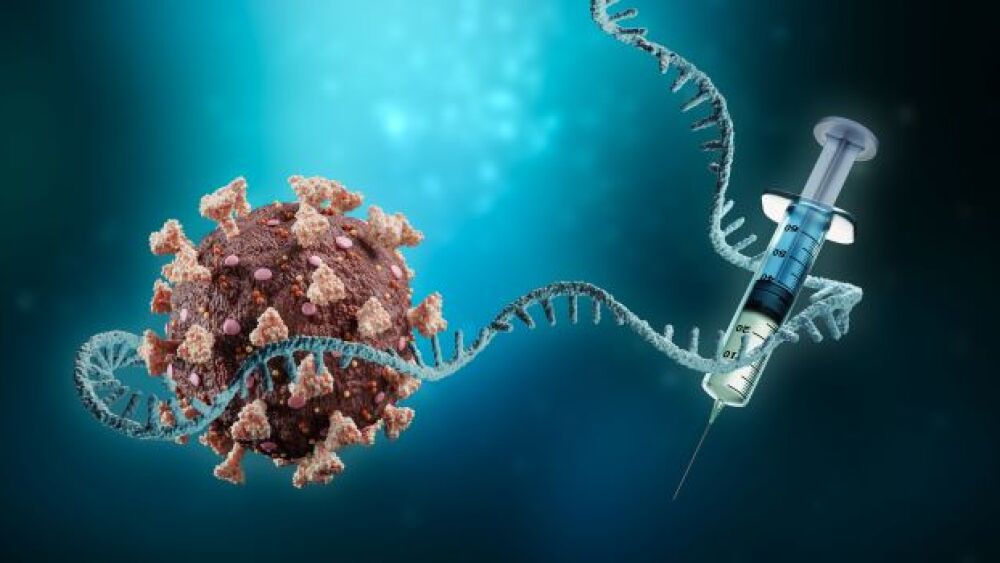Germany’s CureVac is partnering with Belgium’s myNEO to identify specific cancer antigens in order to develop novel mRNA immunotherapies for cancer vaccines.
Germany’s CureVac is partnering with Belgium’s myNEO to identify specific cancer antigens in order to develop novel mRNA immunotherapies for cancer vaccines. myNEO will utilize its biological datasets and integrated machine learning and bioinformatics platform to identify and validate specific targets that they think will stimulate a strong immune response.
“We are translating our mRNA technology insights and learnings to create value in oncology,” said Antony Blanc, CureVac’s chief business officer and chief commercial officer. “myNEO’s state-of-the-art predictive approach to analyze tumor and normal genetic data inputs from multiple sources, perfectly complements our mRNA technology as we advance the development of novel cancer vaccines. Through this collaboration, we prepare to build a strong pipeline in oncology and accelerate growth beyond our progress in prophylactic vaccines.”
Most recently, in April, CureVac and GlaxoSmithKline announced preclinical data for their bivalent second-generation COVID-19 vaccine. The vaccine combines two mRNAs encoding for the Beta and Delta variant of SARS-CoV-2. The work was done with Friedrich-Loeffler-Institut in Germany and compared the vaccine to the corresponding monovalent candidates in a mouse model. Even at half the doses per variant-mRNA, the combined Beta/Delta vaccine produced neutralizing antibodies comparable to the monovalent mRNA vaccines of the respective variant.
“Since the beginning of the pandemic, new COVID-19 variants have continued to evolve, each characterized by different virulence and transmissibility,” said Dr. Igor Splawski, CureVac’s chief scientific officer. “New vaccine strategies, such as multivalent approaches, combining several variant-specific mRNAs within one vaccine, can be essential to take control over the COVID-19 virus dynamic and set new standards for broadly effective vaccines against other infectious diseases. Following our recent multivalent approach for influenza, we are now taking advantage of this advanced technology approach in our COVID-19 vaccine program.”
myNEO focuses on neoantigen-directed immuno-oncology. On May 3, the company inked a strategic partnership with Sweden’s Abera Bioscience on cancer vaccines. Abera is a vaccine platform development company with an immunogenetic platform that allows for high-density display of proteins, such as antigens and neoantigens, on the surface of bacterial-derived vesicles.
Cedric Bogaert, chief executive officer and co-founder of myNEO, said of the CureVac collaboration, “CureVac is a front-runner in the mRNA technology ecosystem, and its use for the development of therapeutic cancer vaccines has shown great promise. We’re convinced that combining our innovative neoantigen target identification and selection methods with mRNA technology holds great potential for immunotherapies, and CureVac was the logical choice for us to further validate this avenue. Supplementing our own developments with this collaboration will allow us to benefit from CureVac’s years of experience and know-how, and to create a significant impact on the immunotherapy domain.”
Of course, CureVac isn’t the only company leveraging mRNA technology to focus on cancer. Both Moderna and Germany’s BioNTech have mRNA cancer vaccines in their pipelines. In April, BioNTech presented promising results in its first-in-human Phase I/II trial of its CAR-T cell therapy, BNT211, in patients with advanced solid tumors. BNT211 is made up of two drug products: an autologous CAR-T cell therapy that targets the CLDN6 and CLDN6-encoding CAR-T cell amplifying RNA vaccine (CARVac), which leverages BioNTech’s mRNA-lipoplex technology. The focus there is on testicular, ovarian, endometrial, fallopian tube, sarcoma and gastric cancers.
And although Moderna has a broad pipeline with plenty of infectious disease vaccines, it is also developing mRNA therapeutics for autoimmune disorders and cancer. These include a personalized cancer vaccine (mRNA-4157), a KRAS vaccine (mRNA-5671), a checkpoint vaccine (mRNA-4359) and other cancer indications.
Although Moderna, BioNTech and now CureVac appear to be leaders in the mRNA therapeutic space, the success of the Moderna and Pfizer-BioNTech vaccines against COVID-19 acted as scientific and financial proof-of-concept for the use of mRNA technologies. It won’t be long before most biopharma companies add mRNA technology to their stable of drug development tools.





